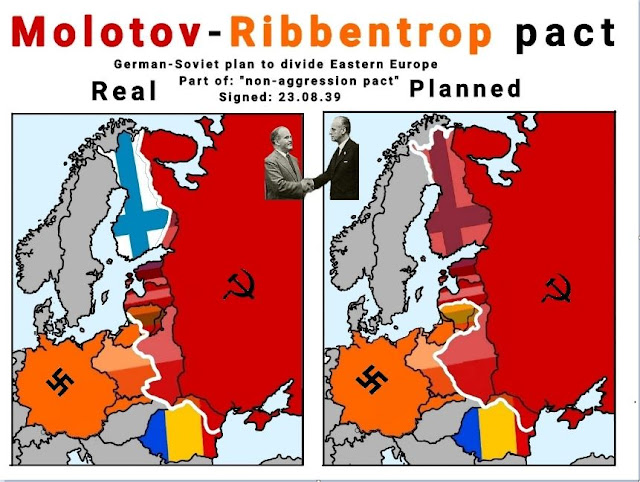Since the invasion of Ukraine, Putin, the Russian dictator, has claimed that Ukraine is “an inalienable part of our own history, culture, and spiritual space.” Belarus, Ukraine and Russia, all trace their roots back to the ancient principality of Kyivan Rus’. According to Encyclopedia Britannica "both the origin of the Kievan state and that of the name Rus, which came to be applied to it, remain matters of debate among historians. According to the traditional account presented in The Russian Primary Chronicle, it was founded by the Viking Oleg, ruler of Novgorod from about 879. In 882 he seized Smolensk and Kyiv, and the latter city, owing to its strategic location on the Dnieper River, became the capital of Kievan Rus. Extending his rule, Oleg united local Slavic and Finnish tribes, defeated the Khazars, and, in 911, arranged trade agreements with Constantinople.
Wednesday, March 23, 2022
Putin's versions of history are myths
Tuesday, March 08, 2022
Ukraine, George Orwell and emergence of state sovereignty
Last week, Putin, the Russian dictator, had his rubber-stamp parliament pass a law providing for sentences of up to 15 years in jail for the crime of distributing "fake news." — Russia is already a dangerous place for journalists and in 1992-2022, 82 journalists have been killed there according to the Committee to Protect Journalists (CPJ): the motive has been confirmed in 58 cases.
“I want everyone to understand, and for society to understand, that we are doing this to protect our soldiers and officers, and to protect the truth,” the speaker of the Russian lower house, Vyacheslav Volodin, said.
The Orwellian move evoked George Orwell's Ministry of Truth in the 'Nineteen Eighty-Four' novel which was first published in Britain in June 1949.
“I do not believe that the kind of society I describe necessarily will arrive,” Orwell wrote, but “that something resembling it could arrive. I believe also that totalitarian ideas have taken root in the minds of intellectuals everywhere, and I have tried to draw these ideas out to their logical consequences.”
George Orwell (Eric Blair 1903-1950): “'Who controls the past,' ran the Party slogan, 'controls the future: who controls the present controls the past.'”
The main character Winston Smith introduces the theory behind the work he does at the Ministry of Truth. The Party understands that by rewriting the events of the past and controlling the narrative of history, they can maintain their position of authority.
Orwell created Newspeak, the official language of the totalitarian state of Oceania. Its purpose was to diminish the range of thought by eliminating shades of meaning and nuance from Oldspeak (Standard English). For example, without a word for freedom, the concept of freedom cannot exist.
The world was divided into three superstates — Oceania, Eastasia, and Eurasia (map from Wiki).
“We don’t see any need to exacerbate the situation or worsen our relationships,” the dictator has said using his version of Newspeak. “All of our actions, if they occur, they occur exclusively, always, in response to ill-intended actions toward the Russian Federation.”;
Tuesday, March 01, 2022
Dublin housing crisis and Big Tech
In 2020 Savills — the international real estate firm — gave Dublin a 14th ranking in a Top 20 of global tech cities. Last month Dublin was ranked 4th as one of the lead “European cities of the future” ahead of London, Amsterdam and Paris according to the Financial Times’s FDI Intelligence. The Irish capital was 5th overall in the 'Global Cities of the Future' and 3rd place in the “business friendliness” and “economic potential categories.”
While big tech firms have centralised their European sales and customer support in Dublin, they are also involved in computer programming and software development. Government data for 2020 show that foreign firms had 38,000 people in the latter activities while Irish firms only had 1,700.
Foreign workers accounted for 17% of employment in 2021 (429,000) and the ratio in Information and Technology (ICT) was 35% (breakdown for 2020). ICT is a sub-category of 'Information and Communication' which includes newspapers, broadcasters and telecommunication, and in 2019-2021 40,000 jobs were added.





